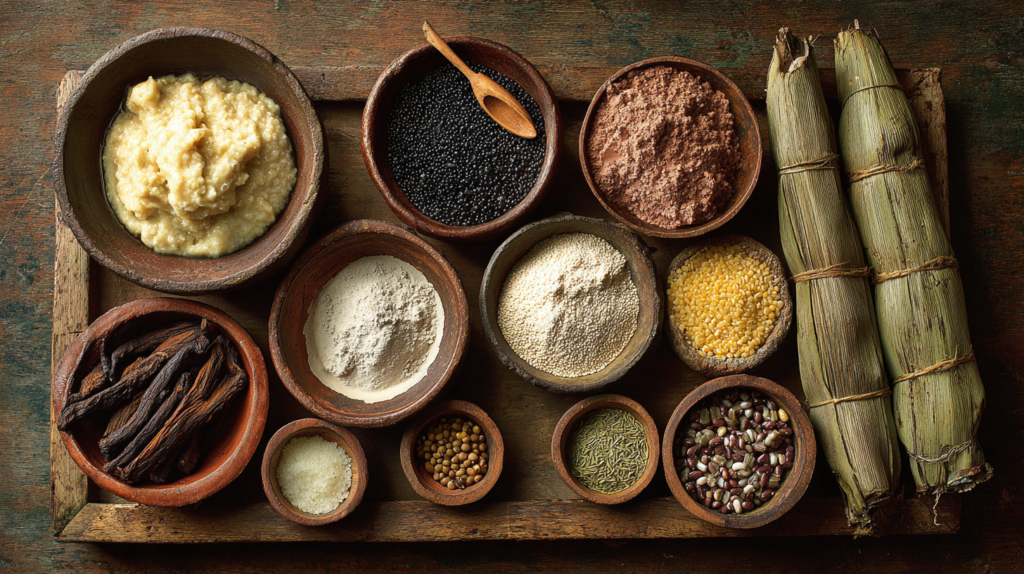Fermented foods have been central to African culinary traditions for centuries, long before the term “probiotics” became a health buzzword. These time-honored foods are not only flavorful and culturally rich, but they also provide immense health benefits—particularly for gut health. As the world becomes increasingly focused on digestive wellness and microbiome balance, African-sourced probiotics offer a powerful, natural solution rooted in heritage. From ogi in Nigeria to amasi in South Africa and injera in Ethiopia, traditional African fermented foods are rich in live cultures that support a healthy gut and a strong immune system.
Understanding the Role of Probiotics in Gut Health
Probiotics are live microorganisms, primarily beneficial bacteria, that contribute to a balanced gut microbiome. A healthy microbiome is crucial for digestion, nutrient absorption, immune function, and even mental well-being. Fermentation naturally enhances foods with these probiotics, and African diets contain a wealth of fermented options that rival any commercial supplement.
Unlike processed foods or lab-formulated probiotic drinks, African fermented foods offer a holistic and sustainable approach to digestive wellness. Some of the most probiotic-rich African foods include kenkey (a fermented maize dish from Ghana), mahewu (a fermented sorghum drink from Zimbabwe), togwa (Tanzanian fermented millet), and ugba (fermented oil bean seeds from Nigeria). These foods introduce beneficial bacteria such as Lactobacillus plantarum and Bifidobacterium into the digestive system, promoting microbial diversity and balance. They help protect the gut lining, combat harmful pathogens, and improve overall digestion.
Fermented Foods as Immune System Boosters
Recent research has shown a strong link between gut health and the immune system. Nearly 70% of immune function is tied to the gut microbiota, which plays a role in regulating inflammation, producing antibodies, and preventing infections. By including African fermented foods in the diet, individuals can naturally strengthen their immune defenses. For example, amasi, a fermented dairy product similar to yogurt, contains lactic acid bacteria known for their antimicrobial properties. These good bacteria compete with and suppress harmful microbes, reducing the risk of gastrointestinal and respiratory illnesses.

Probiotics
Specialists call probiotics “good bacteria”. They owe their informal name to a broad spectrum of uses. In order to be approved for use, these bacterial strains must undergo a series of strict tests and meet specific requirements.
We offer the following strains: Lactobacillus acidophilus, Bifidobacterium longum, Bifidobacterium lactis, Bacillus coagulans, Lactobacillus plantarum.
Moreover, fermented foods stimulate the production of short-chain fatty acids (SCFAs), which nourish the intestinal lining and reduce the risk of chronic diseases like obesity, type 2 diabetes, and colorectal cancer. The health benefits go beyond the digestive tract, influencing heart health, skin clarity, and even mood regulation due to the gut-brain connection.
Culturally Rooted and Nutritionally Rich
One of the biggest advantages of African-sourced probiotics is their affordability and accessibility. In contrast to expensive probiotic pills and imported drinks, fermented African foods are often home-prepared using simple techniques passed down through generations. This approach not only promotes gut health but also preserves cultural identity and supports local economies.
Fermented foods are also more digestible than their non-fermented counterparts. The fermentation process breaks down antinutrients, enhances bioavailability of vitamins and minerals, and reduces allergens—making them ideal for people with sensitive digestive systems. For example, fermented millet or sorghum used in mahewu or togwa is more nutrient-dense and easier to digest than raw grains.
Embracing African Probiotics for Modern Wellness
Incorporating traditional African fermented foods into modern diets is a smart and sustainable way to support gut health. These foods provide a diverse range of beneficial bacteria, are easy to integrate into daily meals, and are compatible with both plant-based and omnivorous lifestyles. Whether it’s a bowl of ogi in the morning, a glass of mahewu in the afternoon, or fermented vegetables as a side dish, consistency is key to achieving long-term gut health benefits.
As the global health community continues to recognize the importance of the microbiome, African-sourced probiotics stand out as a natural, effective, and culturally meaningful way to enhance digestive and immune health.
References
Anyiam, P. N., Onwuegbuchu, P. N., & Ekemezie, C. L. (2020). Traditional fermented foods in Nigeria and Covid-19: a possible approach for boosting immune system. International Journal of Applied Science and Research, 3(6), 127-138.
Heinen, E., Ahnen, R. T., & Slavin, J. (2020). Fermented foods and the gut microbiome. Nutrition Today, 55(4), 163-167.
Mukherjee, A., Breselge, S., Dimidi, E., Marco, M. L., & Cotter, P. D. (2024). Fermented foods and gastrointestinal health: underlying mechanisms. Nature Reviews Gastroenterology & Hepatology, 21(4), 248-266.
Purohit, M., & Patel, A. (2023). Assessment of commercially available probiotics supplements. World Journal of Pharmaceutical Research, 12, 698-716.
Rao, V., Rao, L., Ahiduzzaman, M., & Islam, A. A. (Eds.). (2021). Nuts and nut products in human health and nutrition. BoD–Books on Demand.
Shini, S., & Bryden, W. L. (2021). Probiotics and gut health: linking gut homeostasis and poultry productivity. Animal Production Science, 62(12), 1090-1112.


